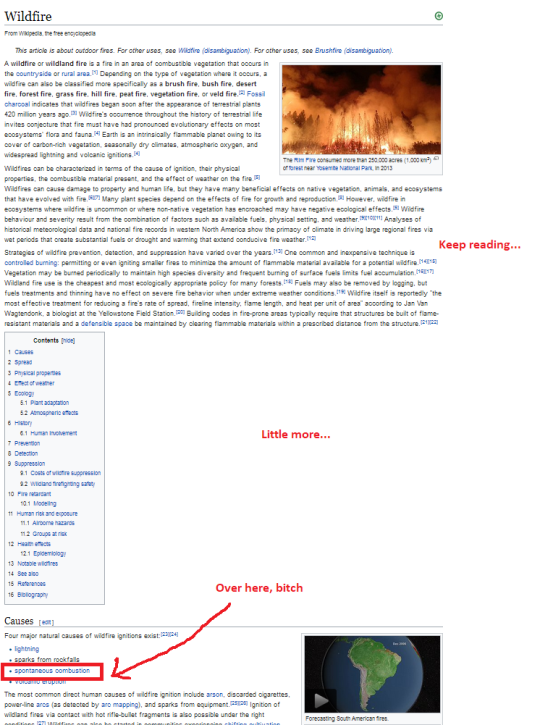

The best thing I picked up from my creative writing subjects
at uni is that you should assume your audience is smarter than you. Because it’s polite. Because you would rather challenge or confuse someone than bore them. Because you don’t want to be a condescending asshole.
An audience surrogate is a widely used narrative device. I don’t
wanna get all TV Tropes about it (because I’m sure they’ve delineated
this to the nth degree) but think of Ryan in The O.C.: he,
like the audience, is unfamiliar with the social mores of the
California elite. Ryan is poor – not Compton poor. Some other kind of
Californian poor. He knows nothing of yachts or charity benefits or
cotillions. He’s never eaten lobster before. He’s never worn a tie. Ryan
asks the same questions any member of the audience would ask. We
experience things through his eyes. Same deal with Harry Potter. Same
deal with lots of successful works. This isn’t condescending – it’s a way
of explaining a world to the audience and aligning us with a character
without shoving exposition down our throats.
Audience surrogate is
fine. What I take exception to is the idiot surrogate: where someone is
asking all the same questions the audience would ask – except they’re
assuming their audience is a gormless idiot so all of their questions
are totally inane and they respond with coos and exclamations to the
most obvious information.
I see this a lot with concepts which I think are commonly understood but for some reason are being explained ad nauseam every time they appear in a TV show, YouTube video, podcast, etc. Prominent recent example: the FCC decision on net neutrality. Do you know how sickening it is to listen to David Remnick, editor of The New Yorker, pretend he doesn’t know what net neutrality is so some guy from Wired can explain it to him? Listen to this shit – Remnick explains net neutrality and then feigns ignorance so his guest can tell him what he already knows. Remnick is a smart dude – why is he playing dumb? It’s for our benefit. What does that tell you about what he thinks of us?
I Hulked out on a variation of this subject a couple of years ago in relation to The Secret History:
[T]here are genuinely loads of examples throughout The Secret History where Tartt talks down to her readers. For example, this:
Suddenly
Camilla stopped and put a finger to her lips. In a dead tree, split in
two by lightning, were perched three huge, black birds, too big for
crows. I had never seen anything like them before.
‘Ravens,’ said Charles.
…
Charles laughed. ‘Three of them for three of us. That’s an augury, I bet.’
‘An omen.’
‘Of what?’
“Don’t know,’ said Charles. ‘Henry’s the ornithomantist. The bird-diviner.’Probably
most readers know what an augury is, but just in case you didn’t and
just in case you don’t have internet access or a dictionary handy, she
translates it to idiot for you: augury = omen. Then Charles uses the
word ‘ornithomantist’ which is a little tricky but I think based on the
context of that conversation and the ‘ornitho’ prefix most people could
probably surmise it’s something to do with bird omens. But just in case
that little jump was too much for the reader, Tartt once again has got
you covered with a neat little translation: it means bird-diviner,
moron.
Are the characters talking down to each other
or is the condescension pointed outwards at the reader? When I wrote
about that a few years ago, I was irritated that she was working so hard
to show readers that she and her characters know more than us (about
bird omens, anyway). But it turns out I’m a fickle, contrary sort of
girl, because if the alternative to down-talking authors is gormless
podcast hosts playing dumb, then I’d much prefer the smug writer who
wants to intellectually challenge their reader (even if it is only in a
hostile attempt to feel superior).
The format of so many podcasts now is an informed person (usually the guest) having a conversation with an insipid host whose vocal fry (think of the affect of the Kardashian-Jenners) and terrifying reliance on the word “like” as both filler and quotative makes the show virtually unlistenable (<< this probably would have sucked anyway but is a pretty egregious example). I don’t think the format of characters explaining things to each other for the audience’s benefit is totally broken: when the explanation is entertaining and gives
you something you couldn’t find on Wikipedia it works really well – like when characters from 30 Rock explained the uncanny valley in the context of a porn video game. People who didn’t know about the uncanny valley are now informed. People who already knew still enjoyed the Star Wars analogy.
For an example of an informed person explaining something to an idiot, think of anything by NPR – like this episode of Planet Money:
Host (voice over): That’s his process – process of elimination. It’s a way
to make sure he’s being as thorough and scientific as possible. And [guest] has been to like fire investigator school [o rly?]. He has a whole list of these
potential fire causes in his head.
Guest: Equipment use, debris burning, lightning, spontaneous combustion…
Host: Spontaneous combustion?
Guest: Yes.
Host: What is that?
Guest: This is where oftentimes you will see an – like a mulch pile, under the right conditions, can self-heat and ignite.
Host: Whoa. Really?
Guest: Yes.
Host: (Laughter). That’s kind of insane. OK.
Do you already know from that transcript that she’s a young woman? Of course she’s a young woman. But she’s also a journalist who is there to interview an expert. Maybe, by way of preparation for this, her job, she chose to do no research so that she could sound sincere when she asked these stupid questions? Who doesn’t know what spontaneous combustion is? You only have to scroll down past three paragraphs on the Wikipedia page on wildfires (the subject of the story she is covering) to see the term spontaneous combustion. This is her job. He’s been to, like, fire investigator school.

Of course, the idiot surrogate isn’t a big deal. I still listen to these podcasts – I just think it’s interesting to think about what these people think about you and how that’s reflected in the way they present their content. Maybe the idiot surrogate is now so standard that people don’t even realise they’re using it as a device. But at some point, someone made a choice that their hosts didn’t need to be impressive or expert, despite having their own radio show. And then, a show which has an impressive, expert host decided to follow the same format. Someone asked David Remnick to pretend for an audience that he didn’t know about net neutrality. And he actually agreed to do it.